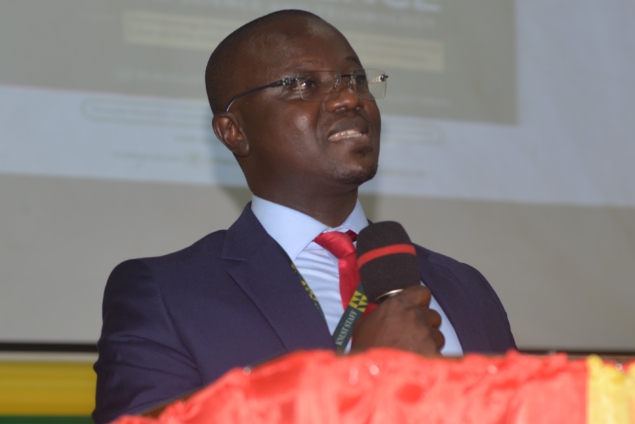A shift to a digitalized economy combined with enabling sound government policies can improve economic efficiency in all sectors.
That is according to the Dean of the Faculty of Law of the Kwame Nkrumah University of Science and Technology, Dr. Ernest Owusu-Dapaa.
He was speaking at the maiden edition of an KNUST Faculty of Law International Conference on Law, Science and Technology.
The conference is under the theme: “Harnessing Digitalization for Economic Development: Law at the intersection of science and technology."
The conference attracted renowned academics and legal experts in the field of law, science and technology and other intersecting disciplines.
Participants discussed key challenges that require a targeted and nuanced understanding of the cross-cutting nature of digital transformation and its policy dynamics in Ghana and Africa.
Dr. Ernest Owusu-Dapaa said the initiative is in line with the faculty’s aim to make their activities available for national benefit.
“As a learning community, we have a duty to undertake research to generate knowledge and disseminate the same to support sustainable industrial and socio-economic development.
“Through this conference, we will build, reinforce and scale up innovative solutions to improving the legal channels that can be adopted in response to potential challenges that will emerge from our digitalization drive,” he said.
Vice-Chancellor of KNUST, Prof. Rita Akosua Dickson emphasized the university’s commitment to improving the digital space.
“We will continue to research and develop applications, software and programmes to help drive the digitalization agenda. Not only in the justice delivery system but for the common use of the ordinary Ghanaian,” she said this in a speech read on her behalf by the Pro Vice-Chancellor, Prof. Ellis Owusu-Dapaa.
A computer engineer, Prof. Kwame Osei Boateng called for policies to realize the gains in digitization.
“We have to ensure a sufficient level of internet infrastructure development and digital education and also to reduce the digital divide.
“This brings policy makers face to face with challenges of harnessing the maximum benefits of digitalization,” he noted.
The conference is divided into 6 cardinal themes aimed at providing insights into the interface of the law, its boundaries with science and technology.
These include; Technology and the Court, Technology and Medical Law Issues, Rights to Privacy and Technology, Emerging Technology and the Law, Digitalization Law and Ethics and Technology Commerce and Banking.
Dr. Owusu-Dapaa revealed that all accepted and presented papers at the conference will feature in the maiden edition of the International African Journal of Law, Science and Technology.
Latest Stories
-
Trump wants to end birthright citizenship. Where do other countries stand?
6 minutes -
Man City favoured, but not popular, in Club World Cup betting
10 minutes -
BoG reversal of sacked employees would not have happened under Akufo-Addo – Franklin Cudjoe
15 minutes -
Majority Leader justifies 2.45% electricity tariff hike
37 minutes -
Western Region police arrest 44 suspects in major ‘galamsey’ raid
1 hour -
NADMO to launch nationwide building assessment following Cape Coast disaster
1 hour -
Over 5,700 residents displaced by flooding in Central Region as NADMO responds to crisis
1 hour -
8 arrested over Nkwanta clashes
3 hours -
Dr. Bryan Acheampong demands national AI strategy to drive economic growth
3 hours -
Ghana prepares for deportation of 188 nationals amid U.S. immigration crackdown
3 hours -
Corruption has no place in Ghana’s future – Nana Oye
4 hours -
Don’t forget your roots: Nana Oye interacts with Ghanaian diaspora in Austria
4 hours -
Migrating to Europe changes gut bacteria and raises heart disease risk – study finds
5 hours -
KTU Radio to participate in Bank of Ghana training workshop
6 hours -
Akwaboah to release new single ‘Smile Again’ featuring Nadia Buari
7 hours

